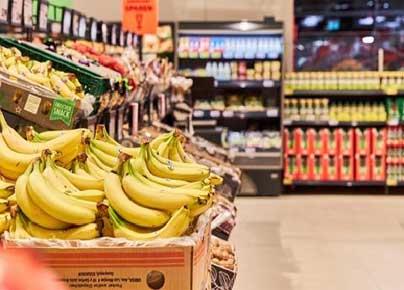Banana-producing countries again ask European supermarkets for a "fair price" for the fruit
2024-05-24

The banana guilds of Latin America once again expressed their concern that the practices of European supermarkets and discount stores demonstrate a lack of real commitment to improving the industry's current conditions and achieving sustainability. Two months after their last statement on the need for European supermarket and discount store chains to adopt the Fairtrade methodology to calculate the fair price of bananas, taking into account the sustainability efforts in environmental and labour terms of the producing countries of the region, including Ecuador, the Banana and Plantain Cluster of Ecuador and the guilds of Colombia, Guatemala, Dominican Republic and Peru are once again calling on their European customers due to the lack of responses.
Through a joint statement issued this Thursday, May 23, banana producers insist that European chains assume their role within the framework of shared responsibility in the supply chain. They propose alternatives to solve this situation and modify their internal policies that impose additional burdens on production. The Banana and Plantain Cluster of Ecuador recalled that last March, during the Fourth Global Conference of the World Banana Forum of the United Nations Organization for Food and Agriculture (FAO) in Rome, banana producers and exporters to the European market exposed the impact that these practices generate in the regional banana sector; however, to date, European supermarkets have not modified their policies.
"To date, supermarkets and discount stores continue with their practices that seriously damage the present and future sustainability of the banana sector. They continue without adopting the trading methodology to calculate fair prices, considering sustainability efforts regarding the environment and labour.
Instead, they have continued with predatory pricing practices, as in the cases of Kaufland (Germany) and Eurospin (Italy), which have been denounced by the guilds that subscribe to this communication", the Cluster affirmed in a statement. The guilds regretted that these practices demonstrate that there is no real commitment from supermarkets and discount stores to improve the current conditions of the industry and achieve sustainability, "but rather they are mere statements without content that seek to distract from their main objective, which is to continue offering a banana of the highest quality at minimal prices, creating an endless cycle in which banana producers and exporters continue to be affected in the long term by low prices and high levels of requirements that are unilaterally imposed and assumed only by the Latin American industry".
In addition, the guilds criticised retailers for continuing to develop a series of projects in the banana-producing countries of the region in which common characteristics are observed: • The absence of inclusion of producers in the development of projects and definition of strategies. According to the Cluster, consultation sessions are characterised by simple presentations of the project without possibly modifying its central axes and adopting a unilateral vision.
There is an absence of significant results for the sustainability of the industry. The guild assured that the approaches of these projects focus on the development of tools and other schemes that do not solve the sector's main problem, which is the absence of shared responsibility of supermarkets and discount stores reflected in the product's price. • an apparent lack of knowledge of the internal mechanisms of the countries, such as their legislation and procedures. The Banana Cluster cited as an example that to achieve a decent salary in each country can vary, being that this objective can be achieved through public policies, collective negotiation or other valid mechanisms established by the constitution and the law of the countries where bananas are produced, currently blurring into an apparent interference in the internal affairs of the countries.









